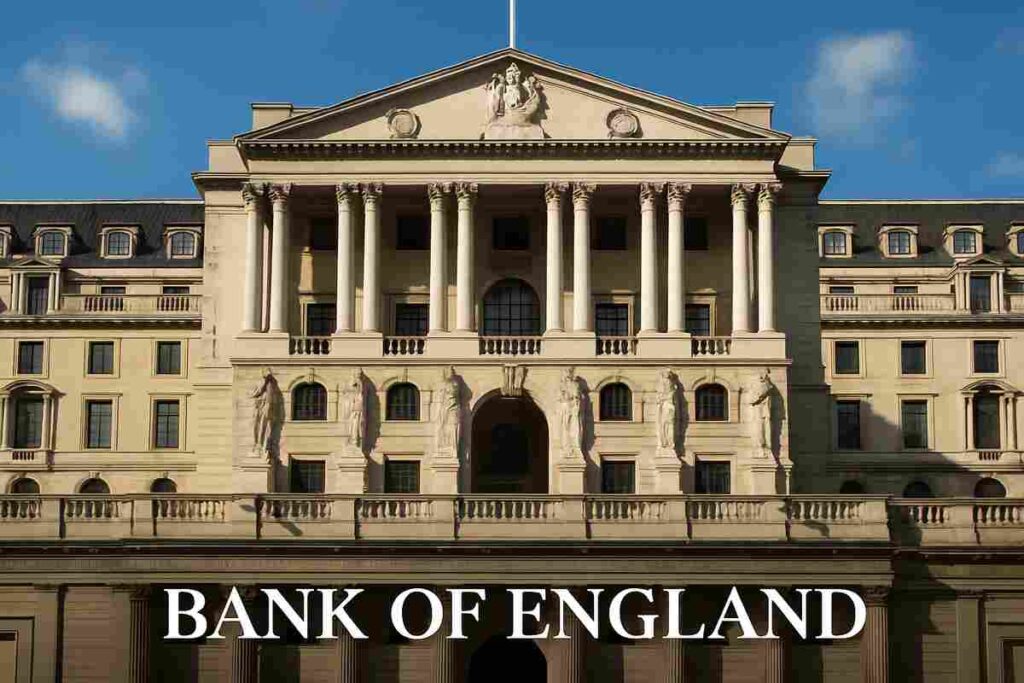
Governor rebuffs claims of reduced growth forecast after rate cut
LONDON, EPICSTORIAN — The Bank of England has reduced the UK base interest rate from 4.5% to 4.25%, marking the first such cut of the year.
This decision, made by the Monetary Policy Committee (MPC), comes in response to a mix of international trade pressures and domestic economic conditions, including signs of declining inflation and slowed GDP growth.
UK Base Interest Rate Decision Follows Trade Deal and Domestic Concerns
The rate cut follows reports of a finalized trade deal between the UK and the US. However, the Bank of England remains cautious due to the ongoing impact of elevated tariffs linked to the U.S. President Donald Trump’s trade policy, which are adding to economic headwinds.
The MPC’s decision highlights the Bank’s careful balancing act in navigating both domestic and international economic pressures.
In the vote to determine the new rate, the MPC was sharply divided. Five members favored a 0.25% cut, two called for a deeper reduction to 4%, and two advocated for keeping rates unchanged.
This split reflects growing uncertainty over the pace at which further rate cuts may occur.
Governor Andrew Bailey’s Cautious Approach
Governor Andrew Bailey emphasized a cautious approach in his statement, citing ongoing global volatility. “Inflationary pressures have eased, allowing us to cut rates,” Bailey explained. “But a gradual pace is essential to preserve long-term stability.”
His remarks underscore the Bank’s preference for a steady, measured approach to rate adjustments despite signs of easing inflation.
UK Economic Growth Projections and Inflation Outlook
The Bank of England’s revised forecasts indicate that the UK economy is projected to grow by 1% in 2025, a slight increase from earlier projections.
However, the underlying economic momentum remains weak, with quarterly growth at just 0.1%. Inflation, which is currently trending downward, is expected to temporarily rise to 3.5% in the third quarter of 2025 before falling below 2% by late 2026.
Despite the rate cut, financial experts caution that mortgage holders may not see immediate relief. Many lenders had already factored in the Bank’s decision, meaning changes in mortgage rates will depend on the type of product.
For example, individuals on tracker mortgages may benefit directly from the rate cut, while those with fixed-rate deals are unlikely to see immediate changes.
Impact on UK Mortgage Holders and Future Rate Changes
The latest rate cut could have implications for UK homeowners, especially those with tracker mortgages, as they typically see their rates adjust in line with the UK base interest rate.
However, for most fixed-rate mortgage holders, the effect may be less noticeable, as their rates are locked in for a set period.
Also Read:
The MPC’s divided vote and the cautious tone from Governor Bailey suggest that further rate cuts may be on the horizon, but the pace of these adjustments will depend on future economic data.
The Bank’s strategy remains focused on managing inflation while ensuring long-term economic stability.







